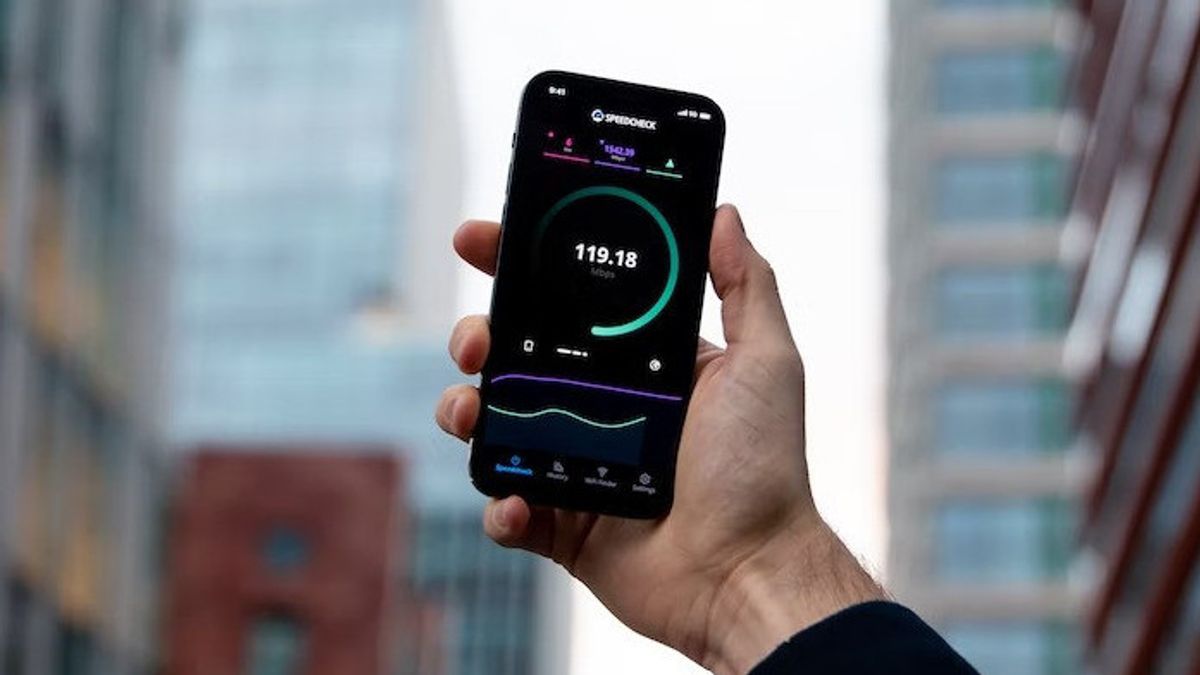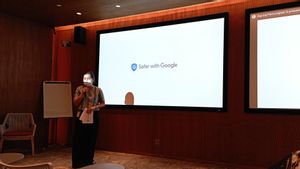JAKARTA - Competition between cellular operators makes data rates continue to dip. The Ministry of Communication and Information (Kemenkominfo) in the 2022 Cellular Congress stated that internet tariffs in Indonesia are the cheapest in Southeast Asia.
Indonesia occupies the last position of the 12 countries in Southeast Asia with the cheapest internet tariffs, I believe an average of IDR 6.028 per 1 Gigabyte (GB).
Then in 11th position there is Vietnam with an average tariff value of IDR 7,030 per 1 GB. After that, the price for internet in 10 other countries in Southeast Asia has exceeded Rp. 11,000 per 1 GB.
Brunei Darussalam is the country in Southeast Asia with the most expensive internet tariff, reaching IDR 32,014 per 1 GB.
The cheap internet rates in Indonesia then make the internet network speed slow. Kominfo said the internet speed in Indonesia is only around 21 Mbps.
Indonesia is a large market share. This is proven by the Association of Indonesian Internet Service Providers (APJII), which said the number of internet users in Indonesia reached 210 million people out of more than 250 million population.
APJII revealed that only 14.5% of the total have fixed broadband facilities. So that it becomes a big and tight market opportunity for fixed broadband internet service providers.
There are currently a number of major players. Such as IndiHome, First Media, Biznet, MyRepublic, MNC Play, CBN, Link Net, and Oxygen.
SEE ALSO:
Thus, the question arises "Will the rate war that occurs in the cellular industry be transmitted to Fixed Broadband?"
"Tight competition among fixed broadband players makes price the main instrument to win the market. With hundreds of operators in this business, the potential for tariff wars could occur," said Cellular CEO, Uday Rayana on Tuesday, October 25 in Jakarta.
In fact, according to Uday, the construction of infrastructure to provide internet access is not cheap. A number of local governments even levy tariffs on internet service providers who will build network infrastructure.
However, Uday hopes that fixed broadband service providers will not only rely on cheap tariffs as the main instrument in attracting customers.
Because according to him, this cheap tariff will make strategic industries unhealthy.
Uday added that some of the keys that operators need to survive are by consistently implementing the following three strategies:
First, the application of tariffs must be affordable. That doesn't mean it has to be cheap but affordable by the community. Second, it must be sustainable, meaning that the industry must be sustainable. Because if it collapses, the community will also be harmed or the quality of service will decline.
“Third, it must be evenly distributed. This means that operators must build in all regions so that the availability of services is evenly distributed throughout Indonesia," he concluded.
The English, Chinese, Japanese, Arabic, and French versions are automatically generated by the AI. So there may still be inaccuracies in translating, please always see Indonesian as our main language. (system supported by DigitalSiber.id)














